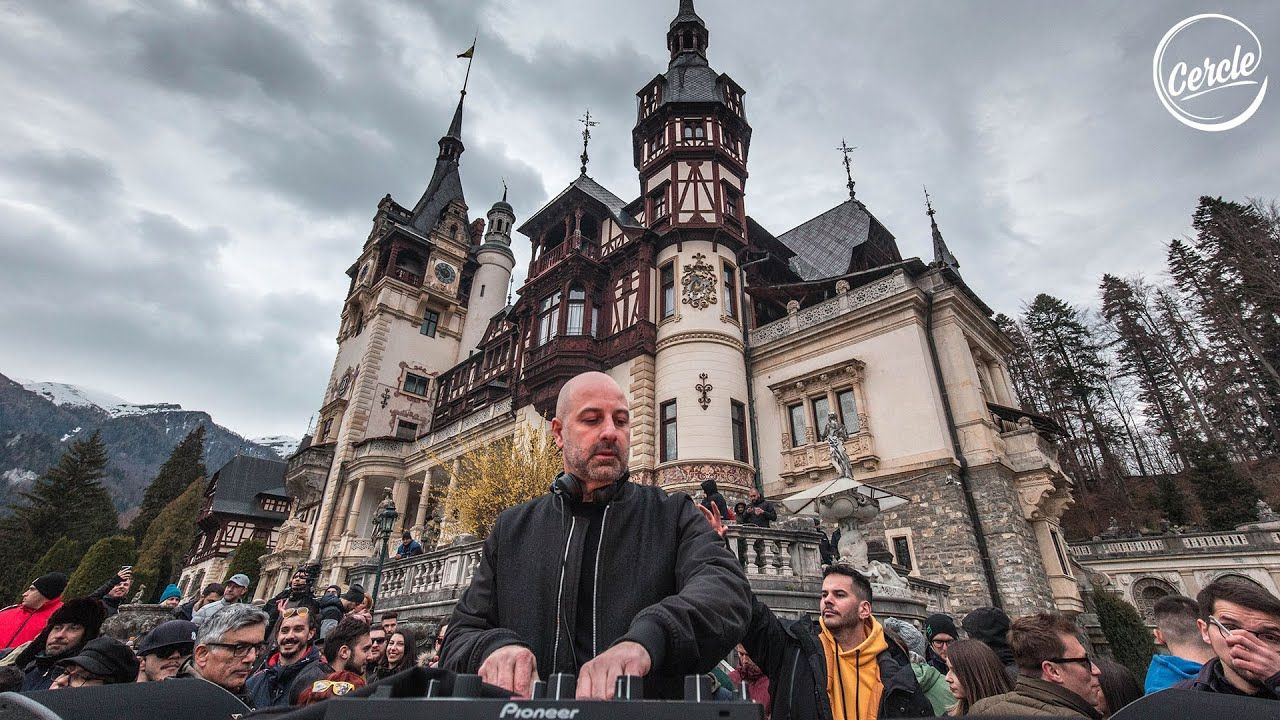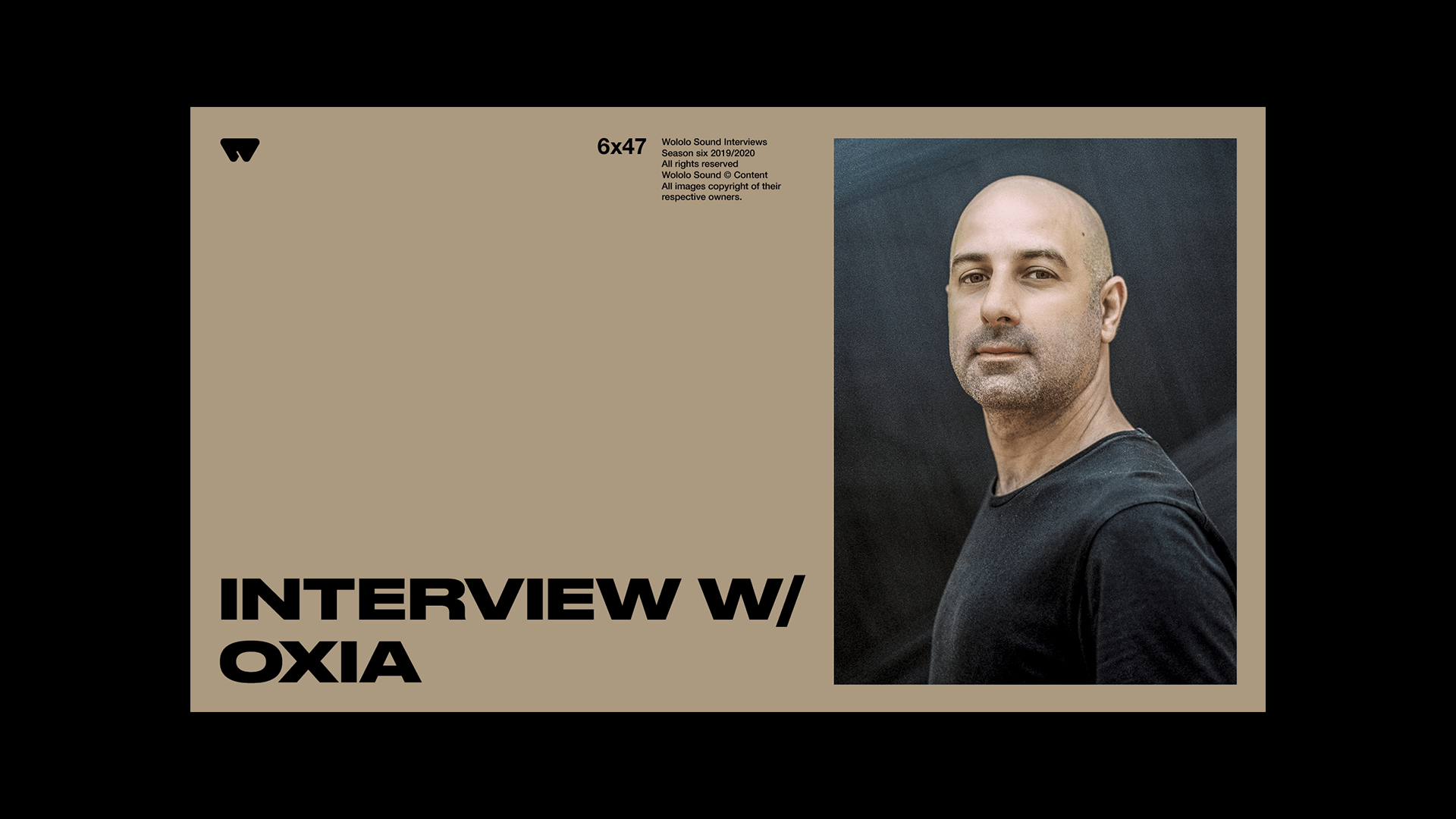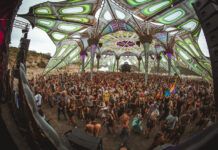Desde el país galo llega uno de los productores con más recorrido dentro del panorama electrónico con una entrevista exclusiva
Hoy tenemos como invitado a todo un veterano de la escena. Hablamos de Oliver Raymond, más conocido artísticamente como Oxia. El francés lleva más de 25 años en el panorama de la música electrónica, siendo uno de los artistas más exitosos de su país de origen. Minimal, deep, toques melódicos, groove o funky, son algunos de los estilos que más lo han caracterizado y que lo han llevado a sacar auténticas perlas como ‘Domino’
Wololo Sound: Hola Olivier. Lo primero de todo, gracias por concederle esta entrevista en exclusiva a Wololo Sound. Eres un veterano de la industria musical pero en caso de que alguien no te conozca, ¿puedes presentarte a nuestros seguidores?
Oxia: Hola y gracias, el placer es mío. ¡Sí, he estado aquí muchos años! Soy un DJ y productor de Grenoble, Francia. Mi primer EP salió en el 95 y desde entonces he lanzado remezclas y produciones en sellos como Kompakt, Knee Deep In Sound, Hot Creations, 8bit, Bedrock… Todo ello sumado al sello Diversions Music que fundé en 2016 con mi amigo Nicolas Masseyeff.
Wololo Sound: Hello Olivier. First of all, thank you for this exclusive interview for Wololo Sound. You are a veteran of the music industry, but in case someone does not know you, can you introduce yourself to our followers?
Oxia: Hi and thank you, pleasure is mine. So … Yes, I’ve been around for many years! I’m a French DJ and producer from Grenoble, France. My first EP was released in ’95 and since then, I’ve signed remixes and productions on labels such as: Kompakt, Knee Deep In Sound, Hot Creations, 8bit, Bedrock… That’s in addition to the label Diversions Music I founded in 2016 with my friend Nicolas Masseyeff.
WS: Tu carrera comenzó hace más de 25 años. ¿Cómo han cambiado las cosas en estas décadas? ¿Qué es lo mejor que se perdió de los 90 y lo mejor que tenemos en 2020 y no teníamos por aquel entonces?
O: Si miras a cómo empezó y a dónde estamos ahora, creo que el cambio más grande que ha ocurrido ha sido la explosión de internet y la música digital, ambos han cambiado la industria de manera considerable. Al principio, en la primera mitad de los 90, nada de eso existía; no había redes sociales… Hoy en día, la popularidad de algunos artistas se debe a su presencia en redes sociales en lugar de su música, lo cual creo que da un poco de vergüenza.
WS: Your career started more than 25 years ago. How have things changed in these decades? What is the best thing we lost from the 90s and the best thing we have in 2020 that we didn’t have back then?
O: If you look at how it started and where we are now, I think the biggest change that’s occurred is the explosion of the Internet and digital music; both have changed the game considerably. At the beginning, in the early 90’s, none of that existed; there were no online social media… Nowadays, some artists’ popularity is due to their social medias’ presence rather than their music, which I think is a bit of a shame.
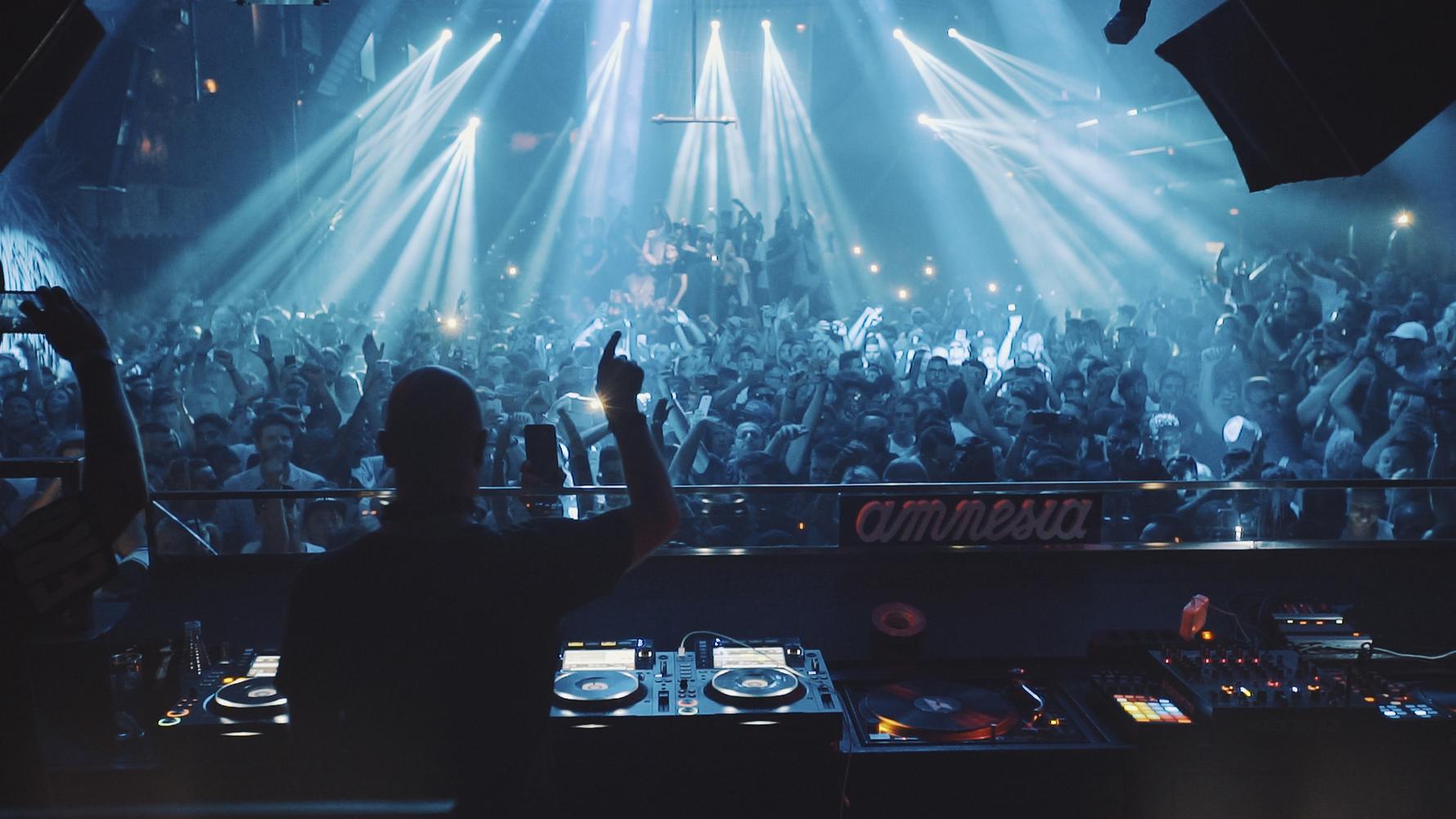
WS: Pero también hay algo positivo con respecto a esto; somos capaces de llegar a una notablemente mayor cantidad de personas alrededor del mundo, así que esto nos ayuda a expandir nuestra música de manera más amplia. Este no era el caso tiempo atrás, cuando solo había vinilos y radios locales para descubrir música fuera de los eventos. Hoy también la gente está mucho más al tanto de todos los eventos que hay, incluso si son a cientos de kilómetros de donde viven.
O: En términos de producción, es mucho más fácil hacer música hoy en día. Tiempo atrás tenías que comprar máquinas que a menudo eran bastante costosas mientras que ahora, con un simple portátil y unos pocos plugins, puedes hacer temas fácilmente. Esa es la razón por la que más y más gente joven ha empezado a hacer música, y es la leche.
WS: But there’s also a positive side to all this; we are now able to reach a significantly larger amount of people around the world so this gives us more possibilities to spread our music more widely. This was not the case back in the days, when there were only vinyls or local radios as a means to discover music outside of the parties. Today also, people are much more easily aware of all the parties taking place, even if they’re hundreds of miles away from where they live.
O: In terms of production, it’s also much easier to make music nowadays. In the old days you had to buy machines that often were costly; whereas now, with a simple laptop and a few plug-ins you can easily make tracks. That’s why more and more young people have started to make music, and that’s cool.
WS: ¿Echas de menos el formato físico de mezclar (vinilos, CDs…) o crees que la era del streaming es importante, necesaria y, al fin y al cabo, económicamente positiva para un artista?
O: Empecé mi carrera de DJ mezclando con vinilo así que me siento un poco nostálgico con todo el “crate-digging“, la sensación de tocar el vinilo con tus propias manos. Pero no me malinterpretéis, ¡de hecho no me gustaría volver a esos tiempos porque cargar con cintas y discos me ha destruído la espalda con los años! Y puedo hacer muchas cosas en reproductores de CD que eran imposible de hacer en vinilo, también.
Para responder a tu pregunta, no estoy seguro de si el vinilo y los formatos digitales deben ser opuestos; la música digital e internet han cambiado la industria drásticamente a mejor, permitiendo a los artistas ganar más control, independencia y recursos económicos, pero los vinilos no representan hoy en día lo que eran hace décadas. La mayoría de vinilos de hoy se lanzan independientemente por los artistas, quienes están por lo tanto obteniendo el dinero que merecen. No creo que fuera nunca una cuestión de formato (físico vs. digital); algunos artistas se veían forzados a depender de grandes sellos para poder tener una subsistencia decente, ser explotados y ver tu dinero gastándose en intermediarios, paquetería, diseño, videoclips, anuncios promocionados y así. Creo que es algo bueno, que la industria musical haya visto este giro.
WS: Do you miss the physical format of mixing (vinyls, CDs…) or do you think the streaming era is important, necessary and, at the end of the day, economically positive for an artist?
O: I started my DJing career mixing on vinyl so I am a little bit nostalgic about the whole crate-digging, physically touching the vinyl type of feeling. But don’t get me wrong, I wouldn’t actually want to go back to those days because carrying record cases has destroyed my back over the years! And I can do many things on CD players that were impossible on vinyl, also.
To answer your question, I’m not sure vinyl and digital formats need to be opposed; digital music and the Internet have indeed changed the industry drastically – for the best, allowing artists to gain more control, independence and financial means -, but vinyls today do not represent what they meant decades ago. Most vinyls are nowadays released independently by artists, who therefore are getting the money they deserve. I don’t think it was ever a matter of format (physical vs digital); some artists were being forced to rely on big labels to make a decent living, being exploited, and seeing your money be spent on intermediaries, packaging, design, video clips, paid adverts and so on. I think it’s a good thing that the music business has seen this shift.
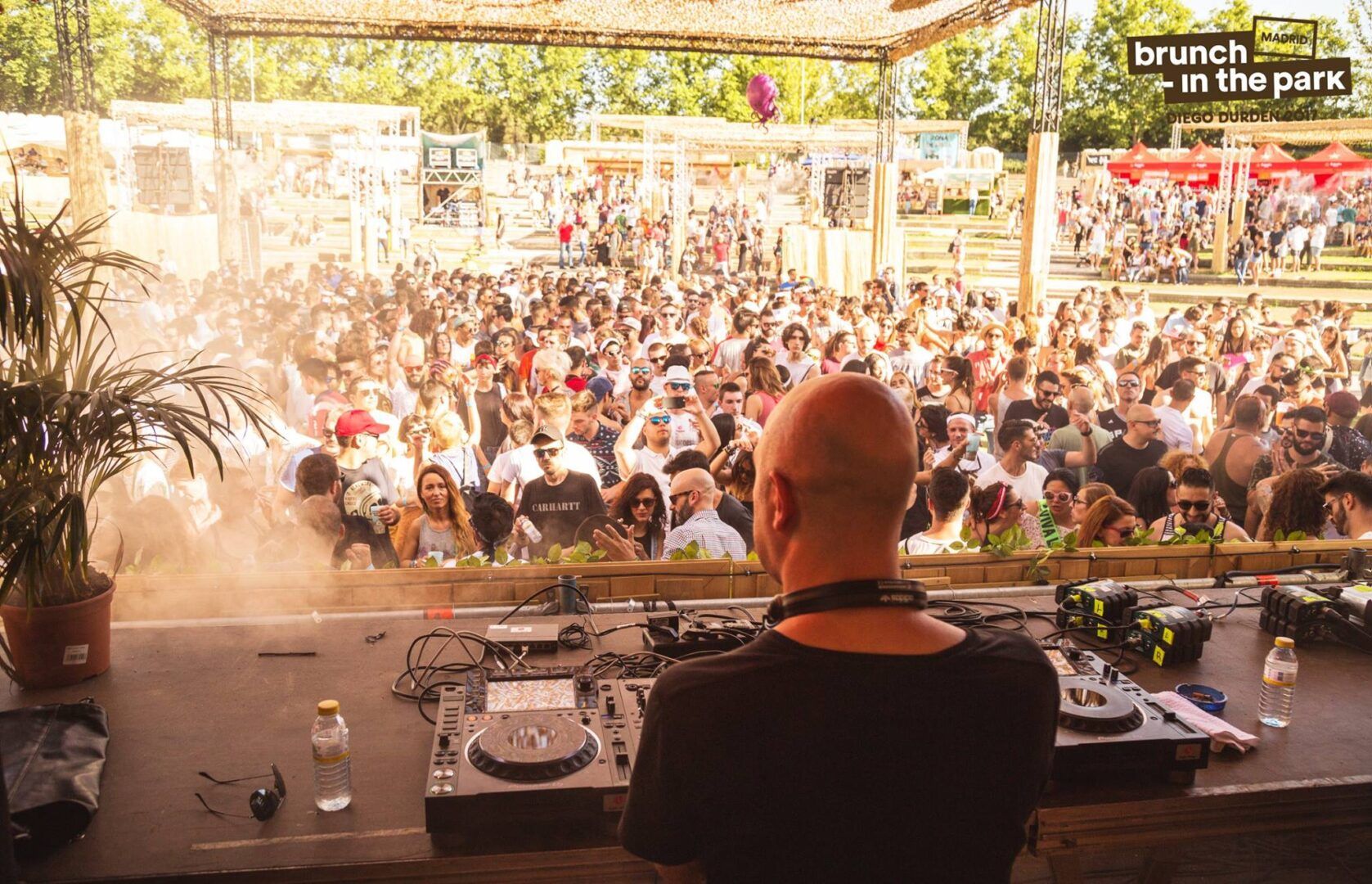
WS: Eres francés, así que perteneces a una escena a la cual España le tiene bastante envidia. ¿Qué crees que hizo Francia tan bien para tener tan buen número de artistas en esas décadas?
O: ¿Ah sí? No tenía ni idea de que la escena española envidiara a la francesa 🙂 Sinceramente no deberíais, porque España también tiene una escena muy buena, con montones de buenos artistas y eventos. La verdad es que no sé qué pasó en Francia para que la escena se desarrollara de esa manera, nunca me pregunté eso. Quizás es debido a influencias del pasado, de nuestra cultura…
WS:You are French, so you belong to a scene that Spain is very jealous of. What do you think that France did very well to get such a good number of artists in those decades?
Oxia: Oh yeah? I had no idea the Spanish scene was very jealous of the French scene : ) Honestly you shouldn’t, because Spain has a very good scene too, with loads of good artists and events. I sincerely do not know what happened in France for its scene to develop the way it did; I never actually asked myself that question. Perhaps it’s due to influences from the past, our culture…
WS: Creemos que tu álbum ’24 Heures’ fue una parte clave en tu carrera, elegido como uno de los mejores LPs de ese año, en el que también lanzaste ‘Domino’, uno de los éxitos por los cuales se te conoce mundialmente. ¿Cómo de importantes fueron 2003-2004 para tu carrera? ¿Crees que necesitas algún tipo de punto de inflexión para ser influyente en la industria musical?
O: Sí, en efecto, mi álbum ’24 Heures’ lanzado en 2004 fue un paso muy importante para mí y para mi carrera – primero a nivel personal, porque era mi primer álbum. Producir un álbum es también muy diferente a producir EPs; el enfoque es difernete para mí. Un álbum es un todo con un marco y temas que se complementan entre sí; cuenta una historia, de algún modo. Y también me permitió hacer y lanzar temas que no eran necesariamente para la pista de baile, lo cual era algo que no había hecho antes. También, un álbum te da mucha más visibilidad en los medios (más entrevistas y así), y esto era aún más real por aquel entonces, así que obviamente gané algo más de popularidad. Mi tema ‘Domino’ no estaba en este álbum pero se lanzó dos años después en un EP de dos temas. Es cierto que este tema supuso otro paso adelante en mi carrera porque, aunque mis temas anteriores funcionaron bien, ‘Domino’ fue aun más allá. Llegó a lo más alto en términos de popularidad porque se convirtió en un éxito que pinchaba todo el mundo. Me refiero, ¡todavía me lo piden y lo escucho y han pasado años! Y sí, a veces necesitas este tipo de cosas para que tu carrera despegue y avance al siguiente nivel. No es una regla escrita, pero ha sido el caso para muchos artistas.
WS: We think your album ’24 Heures’ was a key part of your career, chosen as one of the best LPs from that year, in which you also released ‘Domino’, one of the hits for which you are known worldwide. How important were 2003-2004 for your career? Do you think that you need some kind of turning point to become influential in the music industry?
O: Yes indeed my first album “24 heures” released in 2004 was a very important step for me and my career – first, on a personal level, because it was my first album. Also, producing an album is very different from producing EPs; the approach for me is different. An album is a whole with a framework and tracks that complement each other; it tells a story, in a way. And it also allowed me to make and release tracks that weren’t necessarily dancefloor tracks, which I hadn’t really done before. Also, an album gives you more visibility in the media – more interviews and such -, and this was even more true at the time – so I obviously gained extra popularity. My track “Domino” wasn’t in this album but was released two years later on a two-track EP though. It’s true that this track was another step forward in my career because, even if my previous tracks had worked well, Domino went to a whole other level. It skyrocketed in terms of popularity because it became a hit that everyone played. I mean, I still am asked about it or hear about it and it’s been years! And yes, indeed sometimes it takes this kind of thing for a career to take off and go to the next level. It’s not a rule, but it’s been the case for a lot of artists.
WS: Hace alrededor de un año apareciste en Cercle, ofreciendo un set en Castelus Peles, en Rumanía. ¿Cómo fue la experiencia? ¿Que piensas sobre este tipo de colectivos?
O: Fue una experiencia genial a pesar del frío que hacía. Actuar en un sitio tan noble como la fachada de este castillo que tiene tanta historia… Fue increíble porque fue muy poco común. Y saber que tanta gente de todo el mundo podría ver este show en directo fue algo muy motivador, aparte del público que ya teníamos allí. Creo que lo que hacen Cercle o Boiler Room es algo guay porque mucha gente puede ir a un evento que es muy único. Especialmente en el caso de Cercle, cuyos shows se emplazan en sitios muy poco normales, teniendo como resultado imágenes así de increíbles la mayoría de las veces.
WS: About a year ago you appeared in Cercle, performing a set at Castelus Peles, in Romania. How was the experience? What do you think about this kind of collectives?
Oxia: It was a great experience despite the freezing cold. Performing in a place as novel as the front of this castle that has such history… It was incredible because it was really unusual. And knowing that so many people from all over the world could watch this live show was also very motivating, in addition to the audience on-site. I think what is done by Cercle or the Boiler Room is very cool because a lot of people can attend a show that’s a quite unique. It’s especially the case for Cercle, whose shows are set in very unusual places; this results in incredible images most of the time.
